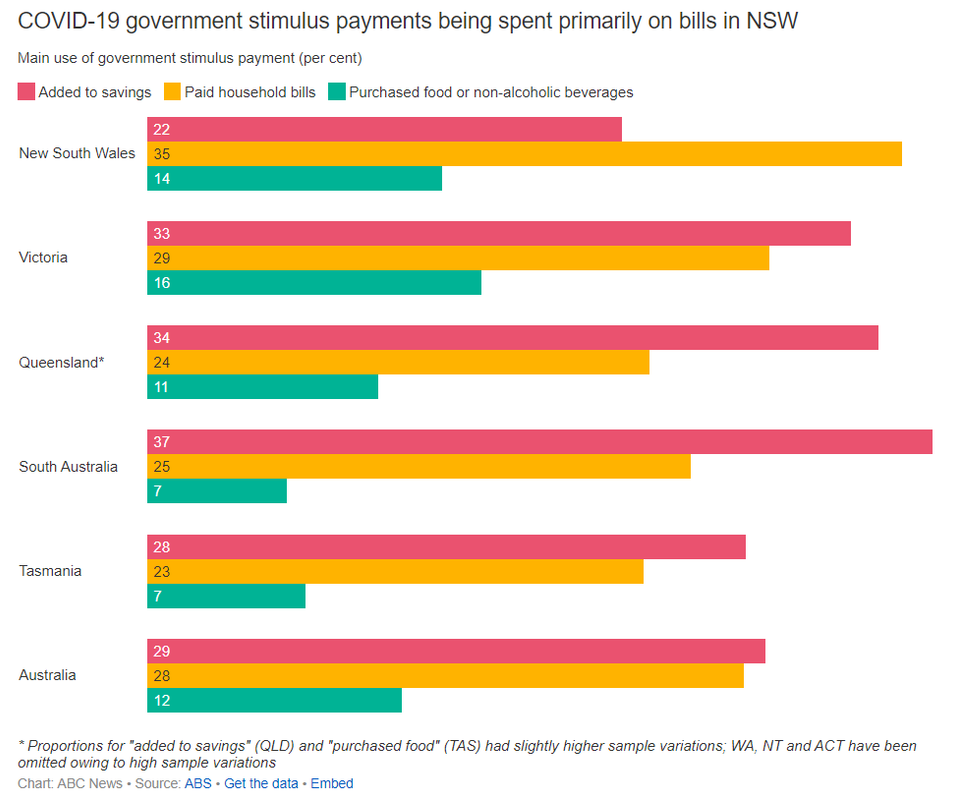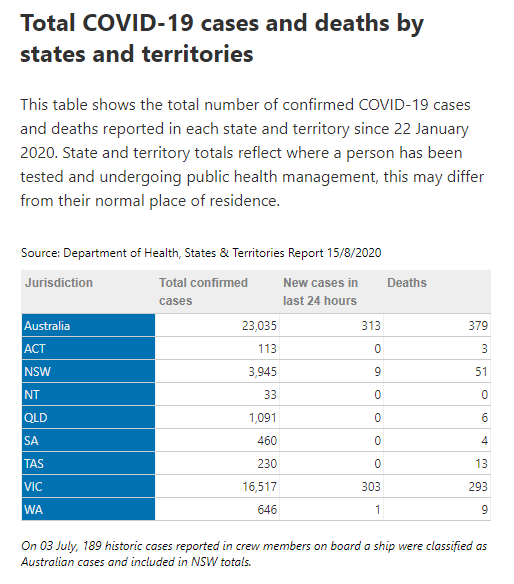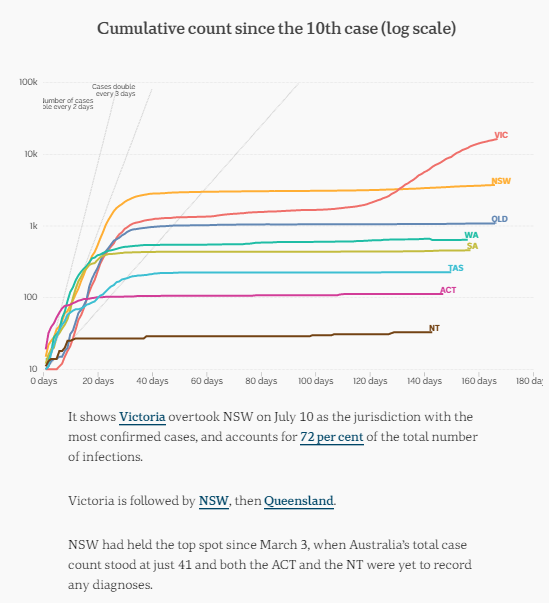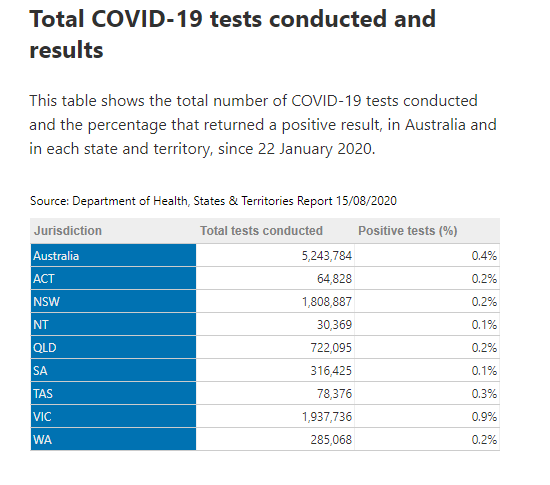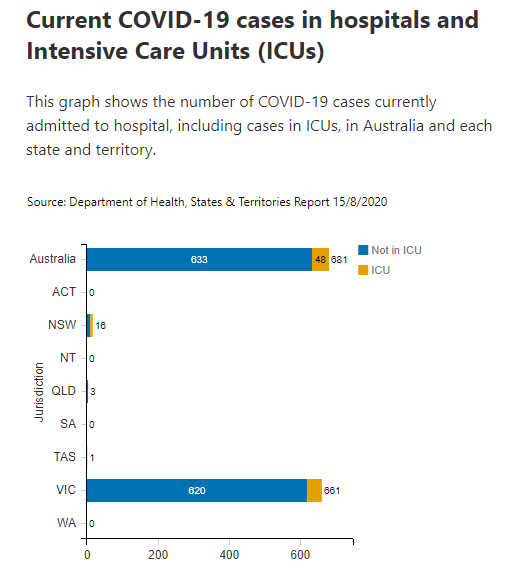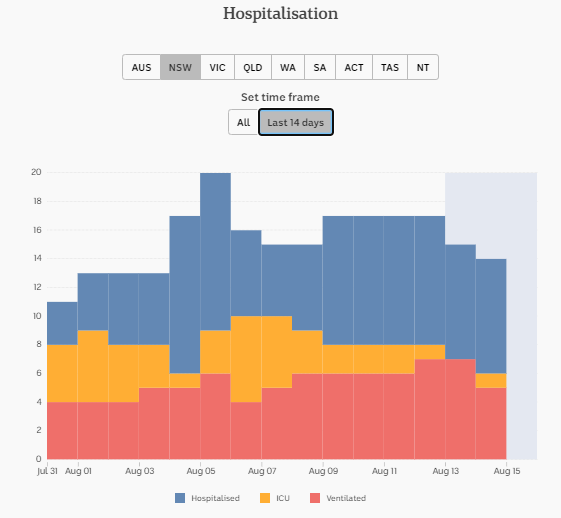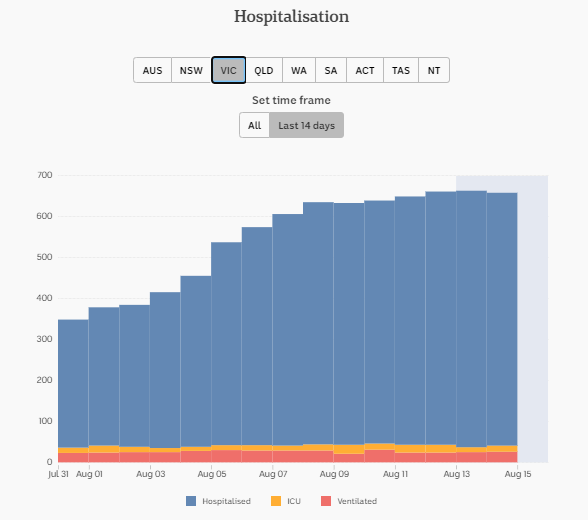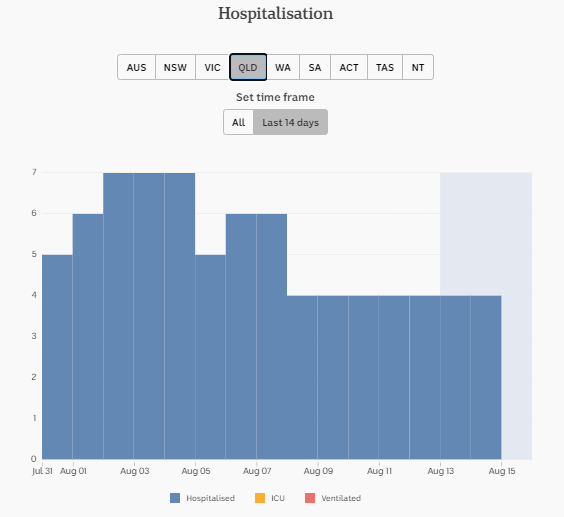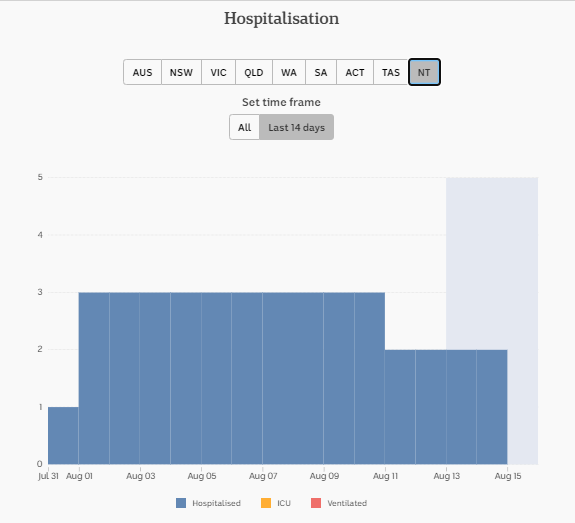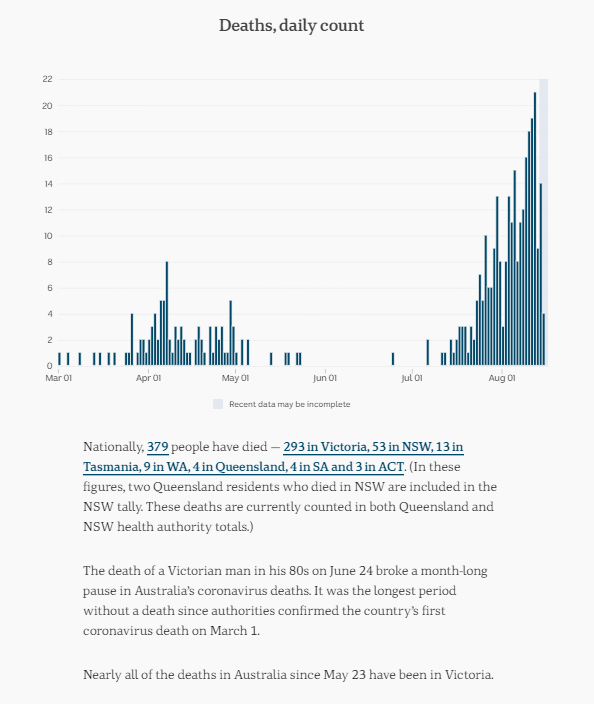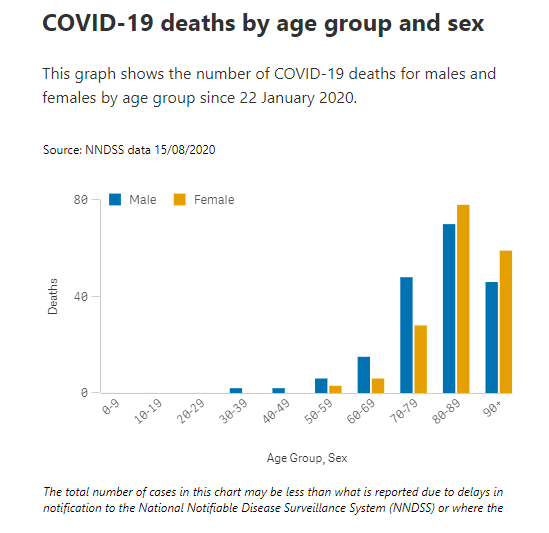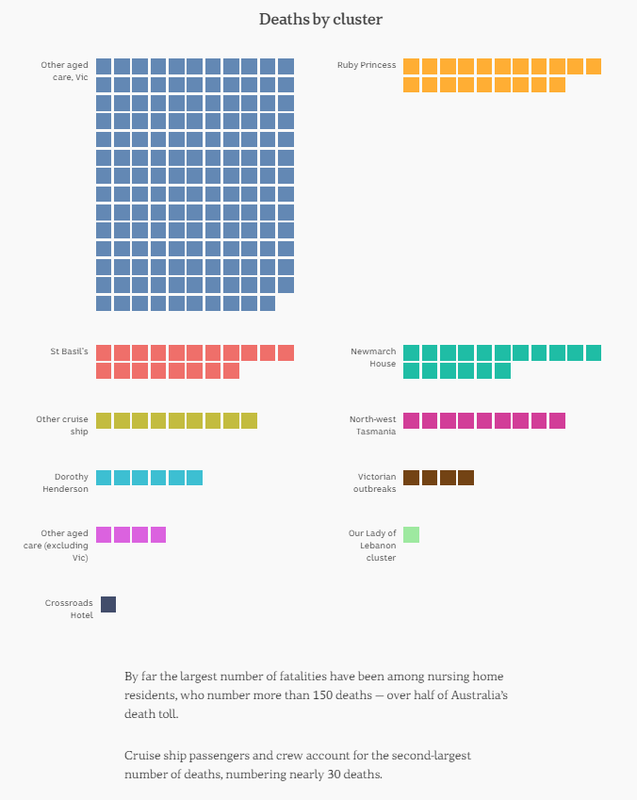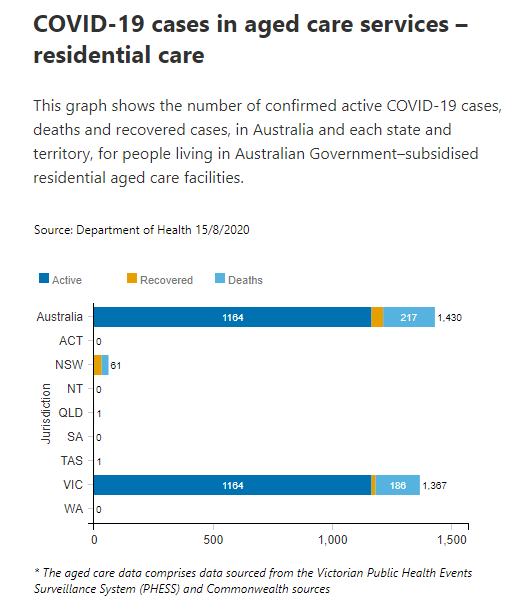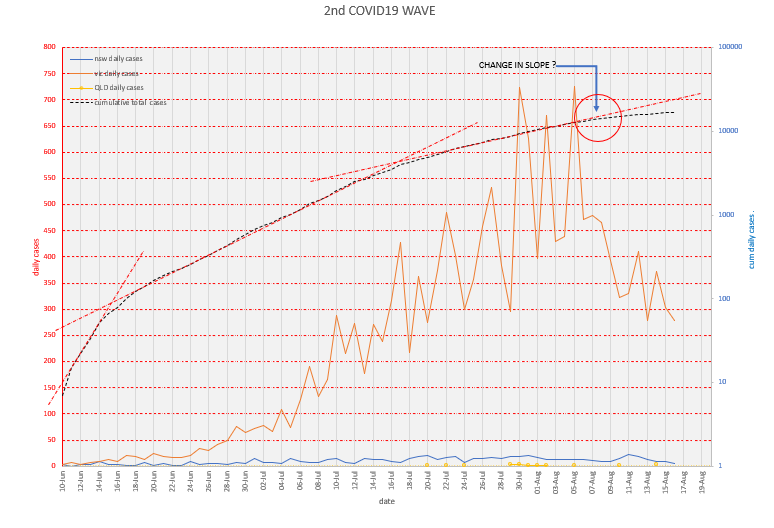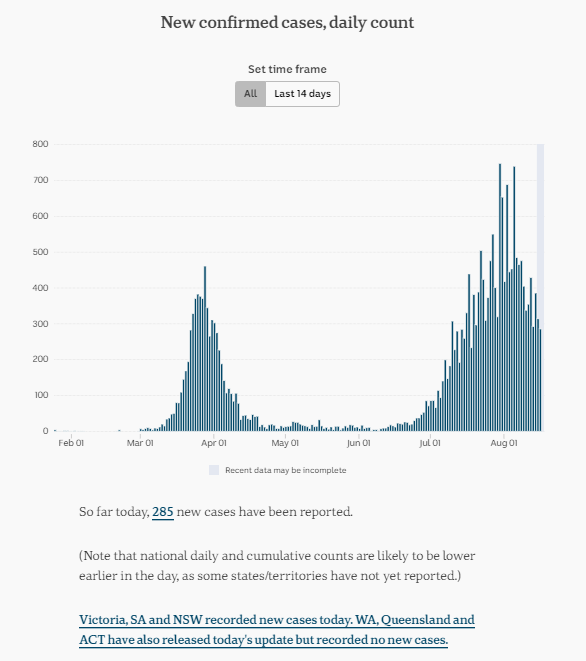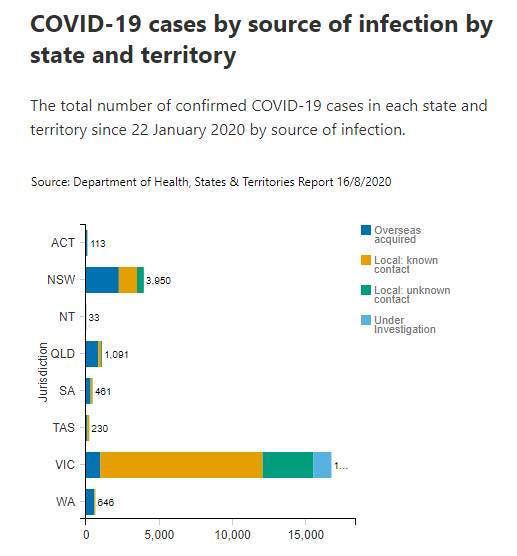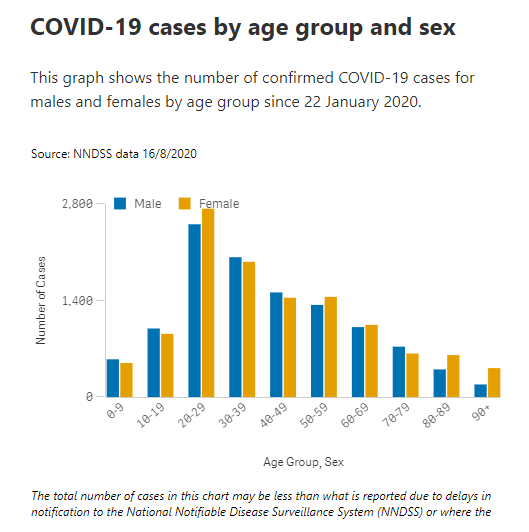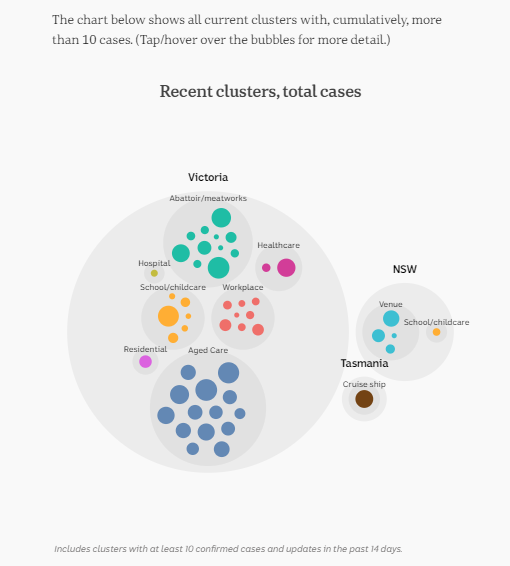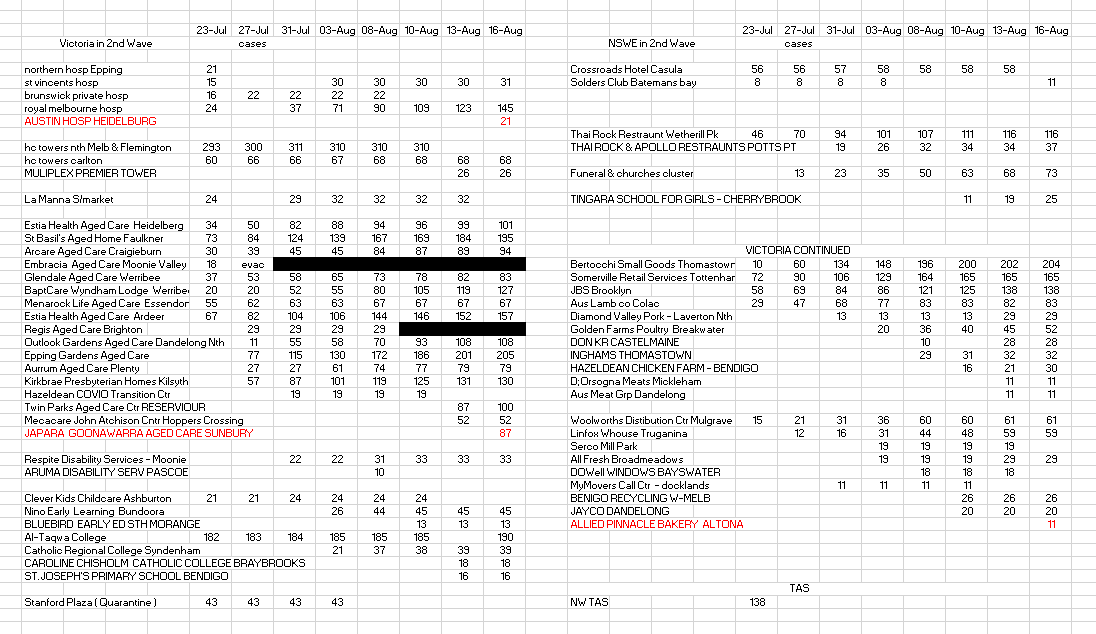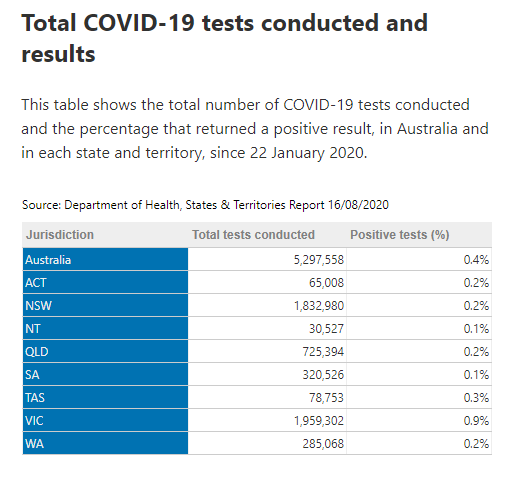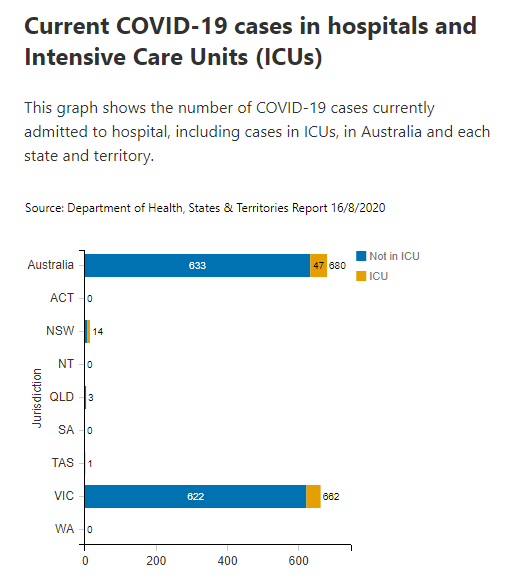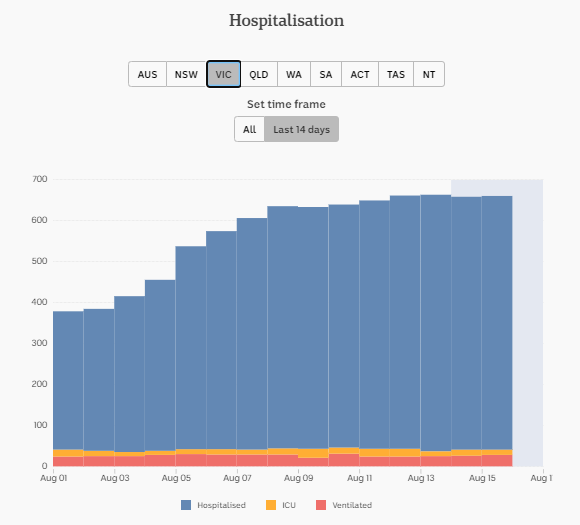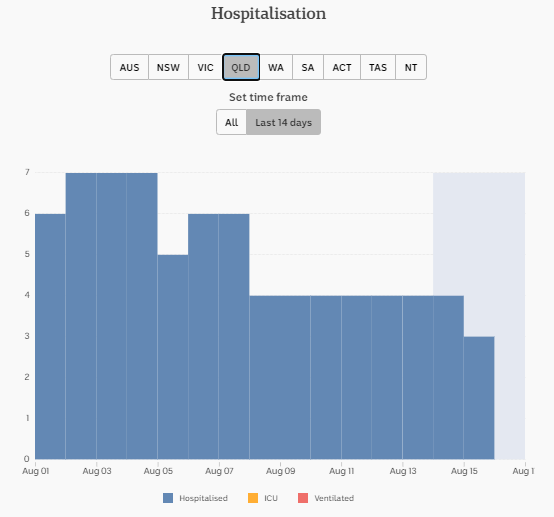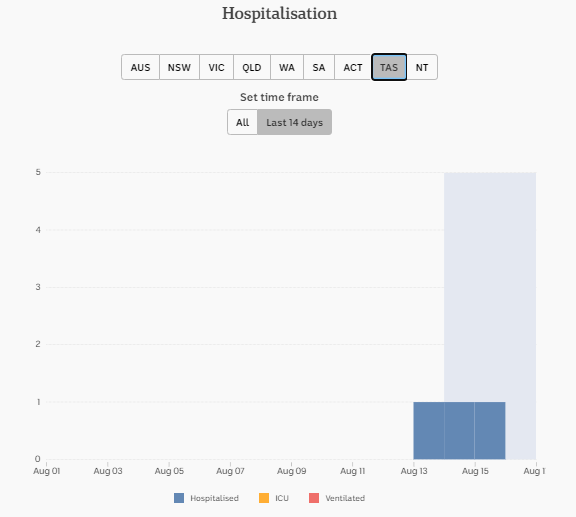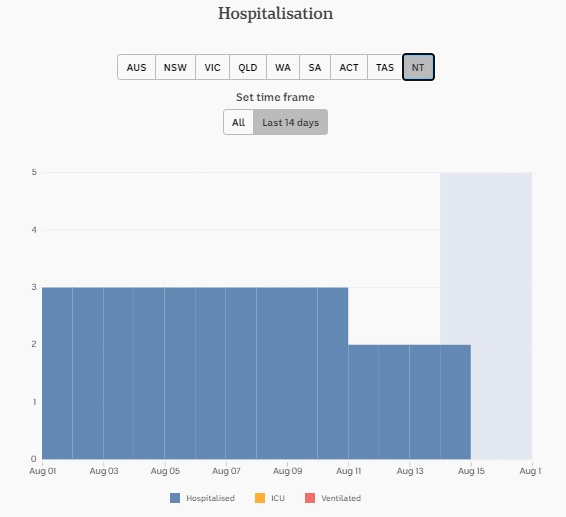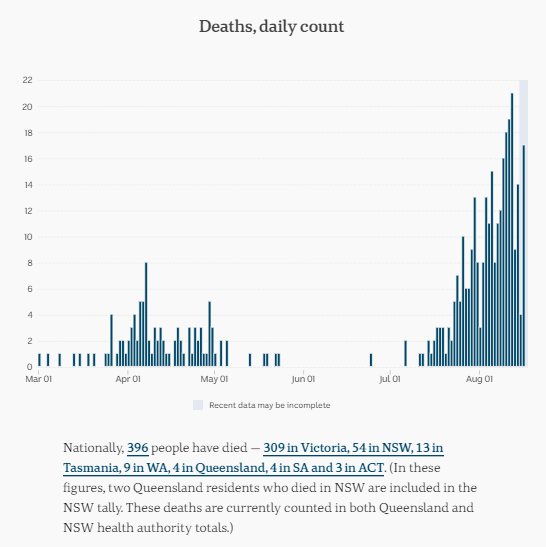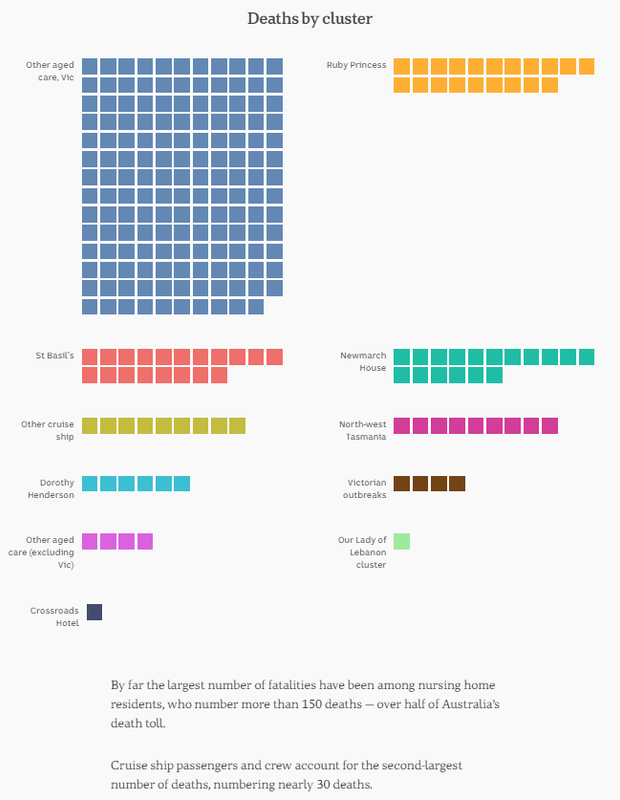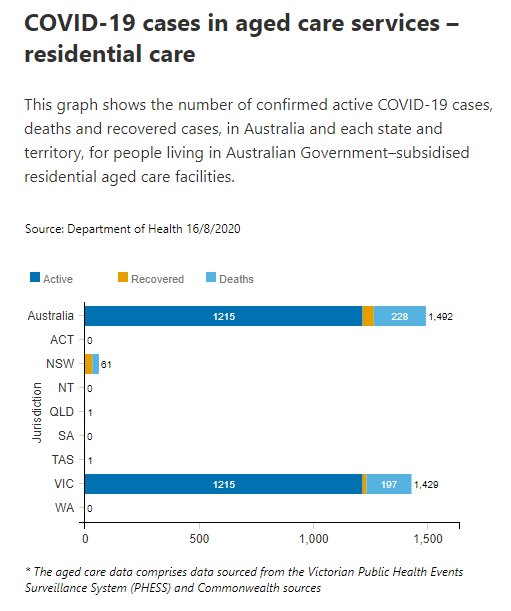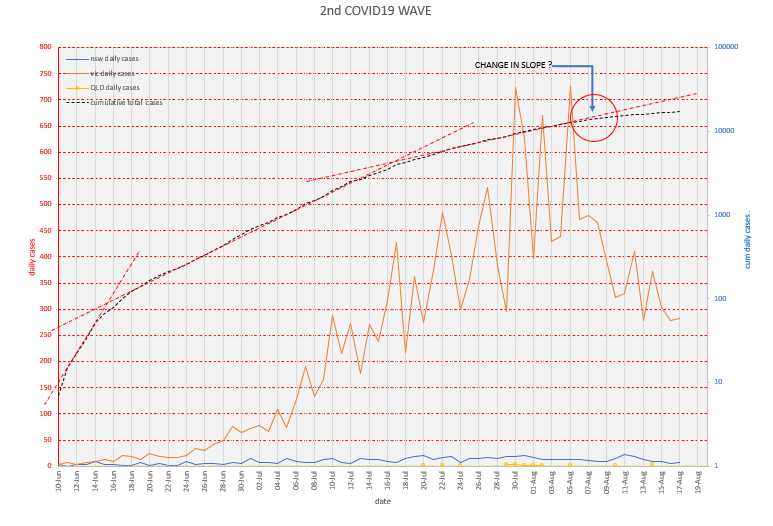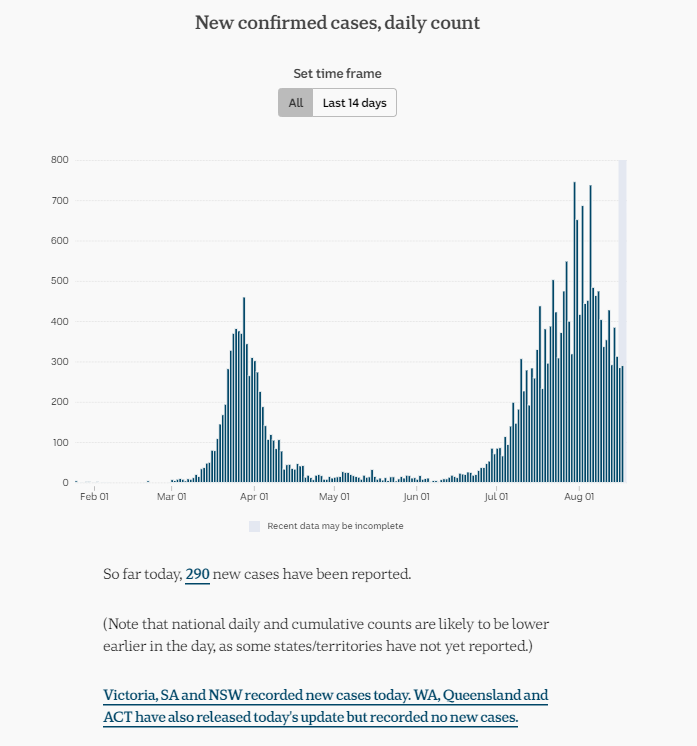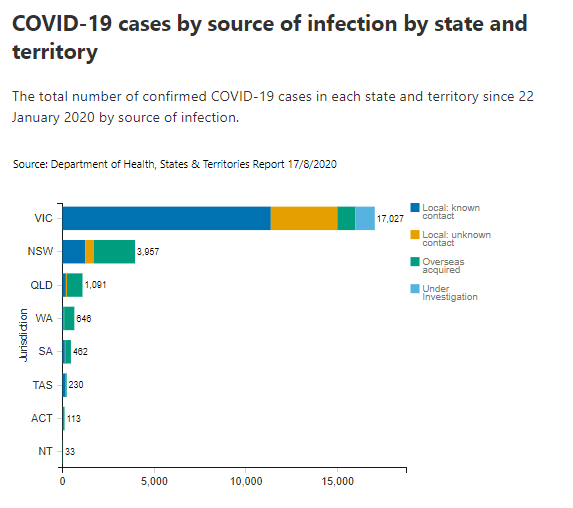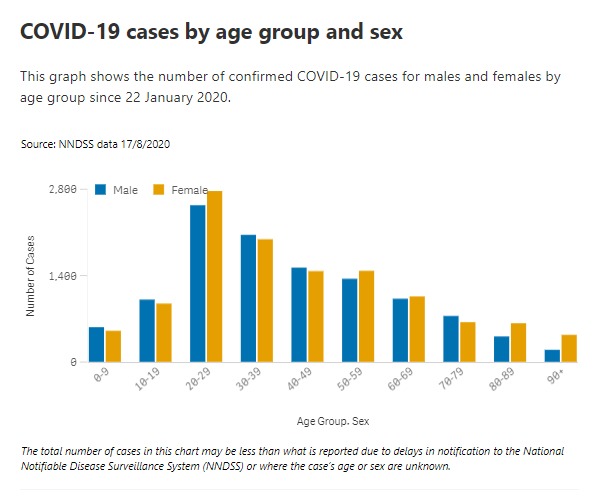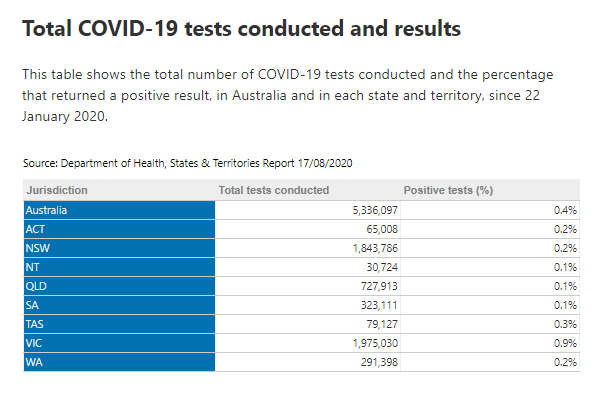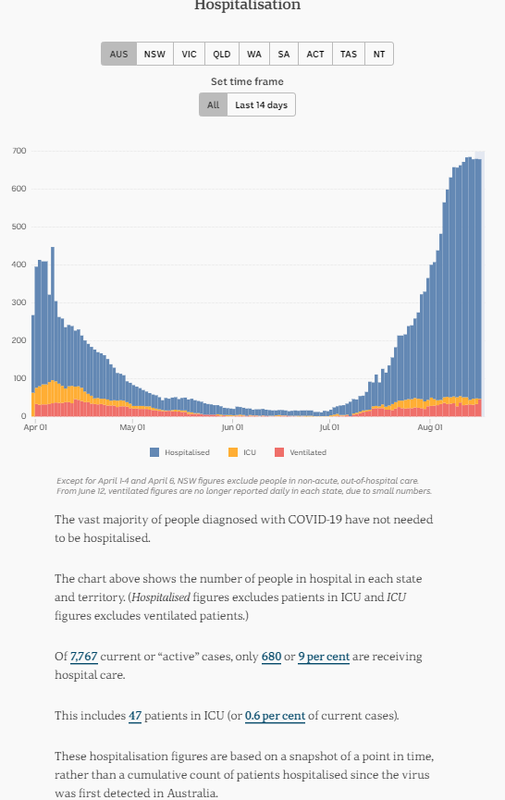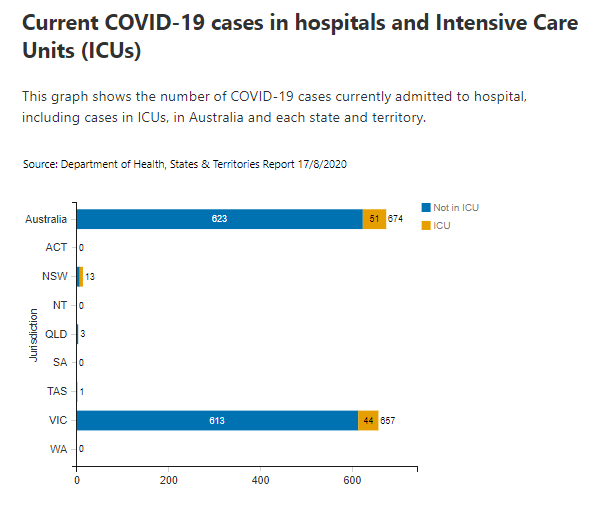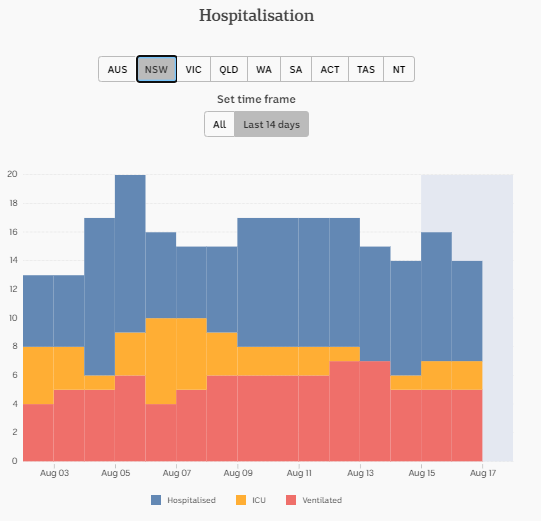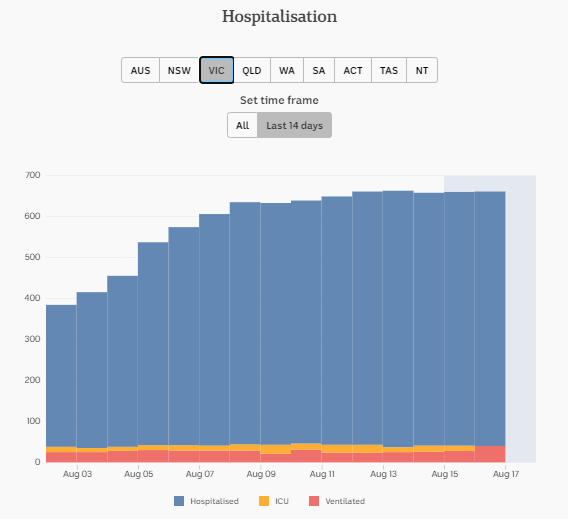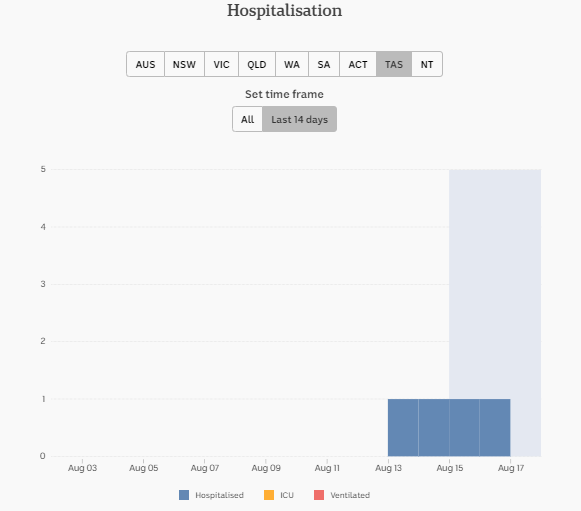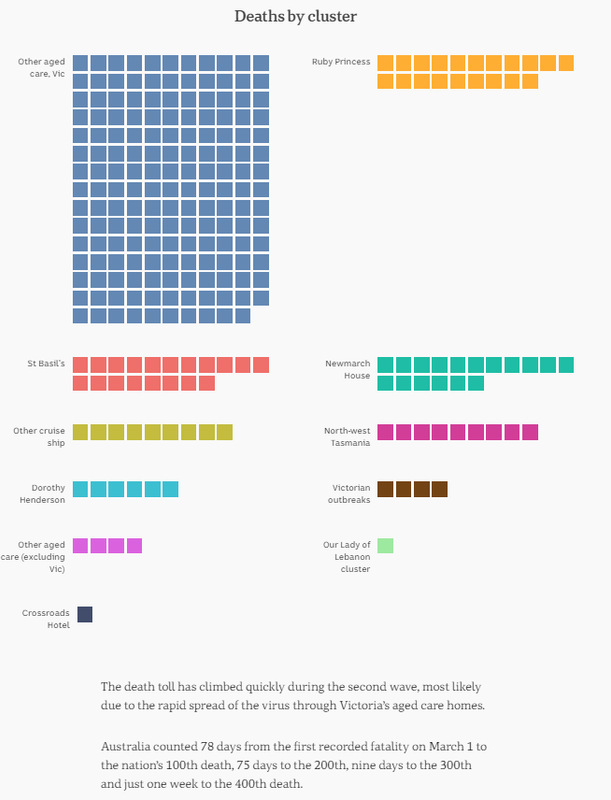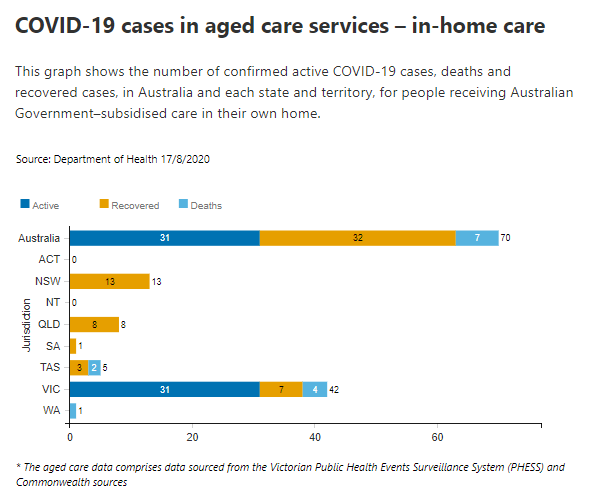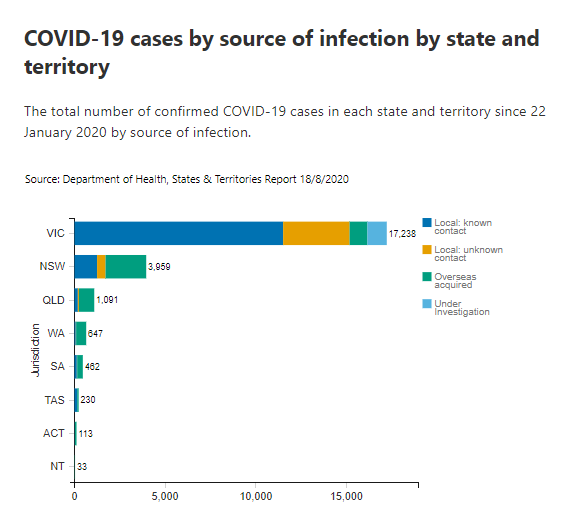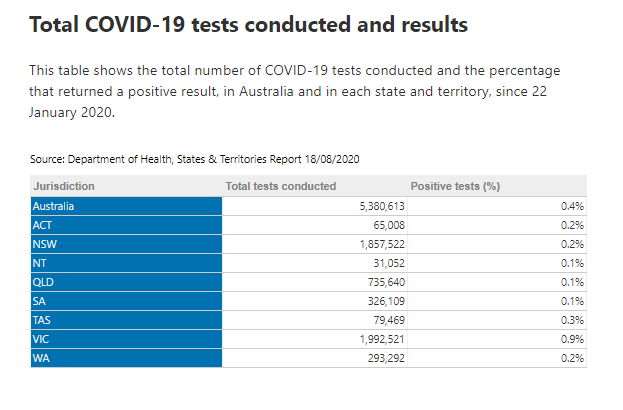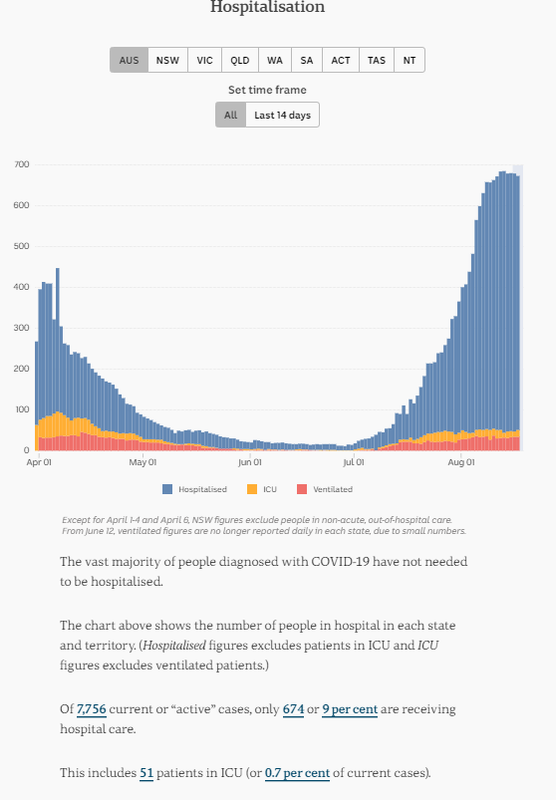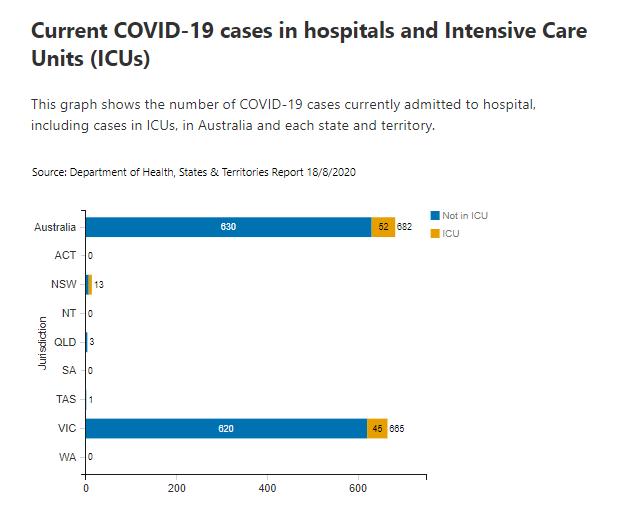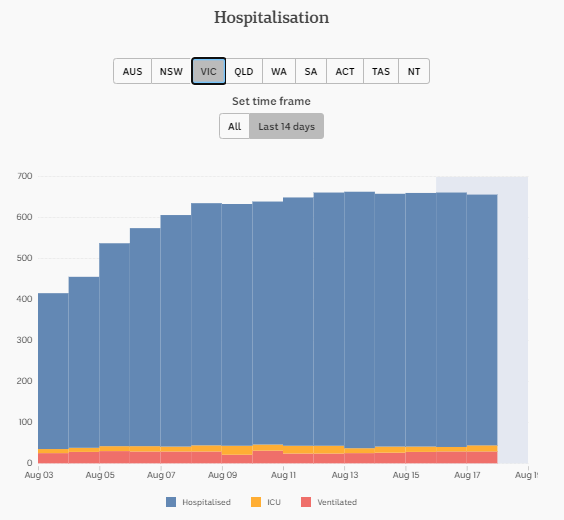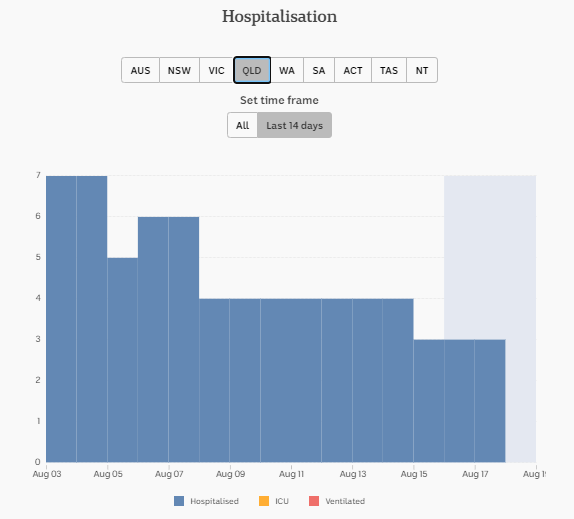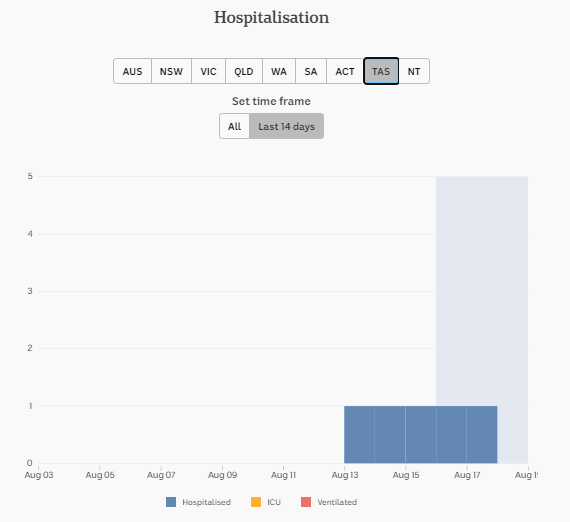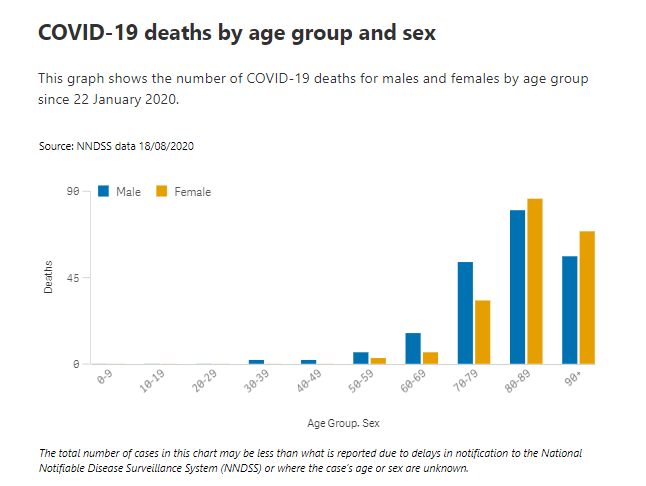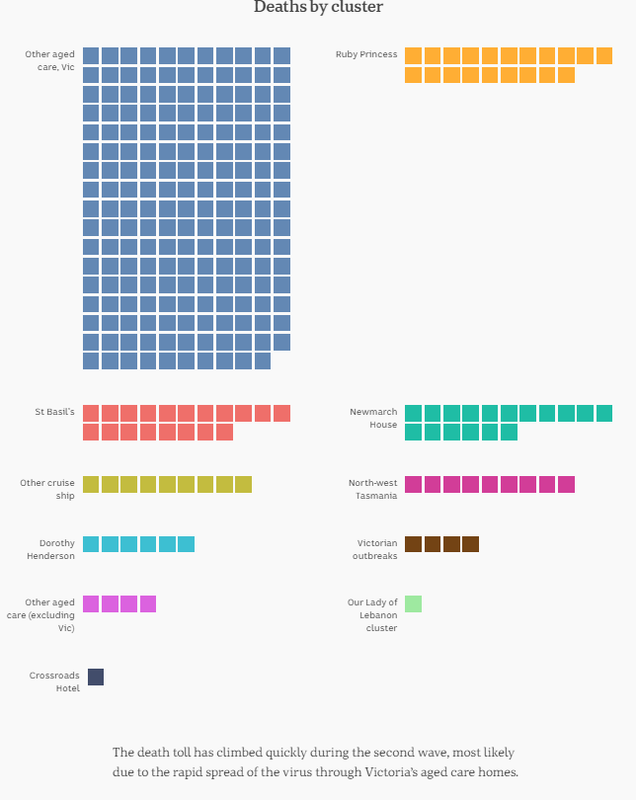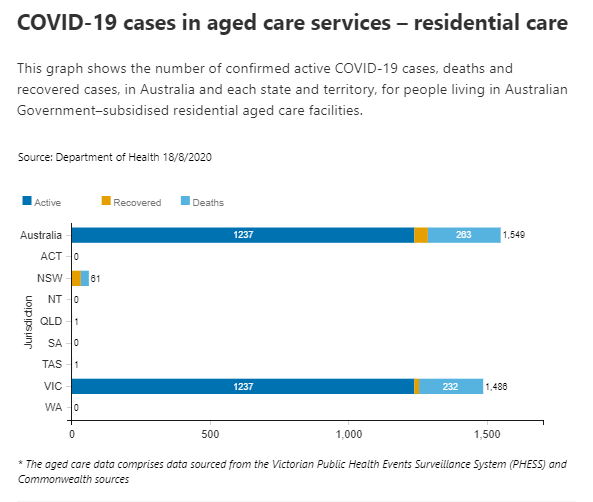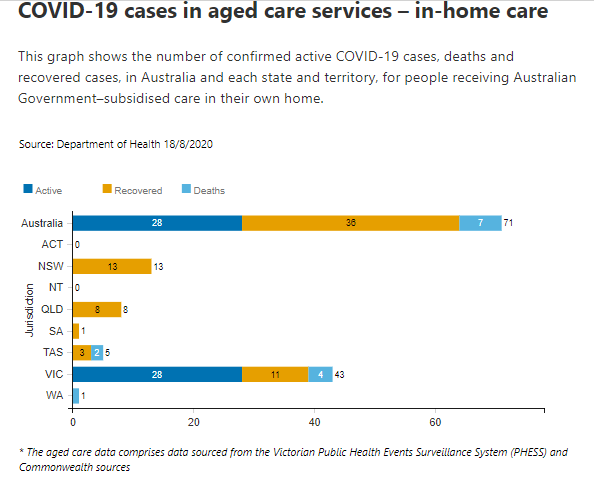14 AUGUST QLD
Three new cases recorded in Queensland
https://www.msn.com/en-au/news/australia/new-covid-19-cases-in-queensland/ar-BB17VZRG?ocid=msedgdhp
https://www.msn.com/en-au/news/australia/queensland-records-two-new-cases-of-coronavirus/ar-BB17W5TL?ocid=msedgdhp
REGIONAL QLD
COVID-19 concern spreads north as Wide Bay locals flock to get tested
Coronavirus has 'exposed' Surfers Paradise weakness as shops, restaurants move against pub crawls
Queensland's tourism industry hopeful after bumper long weekend crowds flock to major holiday destinations
ON THE NSW – QUEENSLAND BORDER
Doctors left waiting for exemptions to cross into Queensland to see patients
BREACHES
4 men fined after crossing Queensland border on a boat trip
Brisbane Roar's Scott McDonald investigated for alleged COVID-19 breach
14 AUGUST SA
SA records one new COVID-19 case
https://www.msn.com/en-au/news/australia/new-covid-19-case-in-south-australia-after-flight-lands-from-india/ar-BB17WQ9P?ocid=msedgdhp
https://www.msn.com/en-au/news/australia/south-australia-records-new-coronavirus-case-but-man-not-linked-to-school-cluster/ar-BB17WAfH?ocid=msedgdhp
AGED CARE CHANGES EFFECTIVE IMMEDIATELY
SA aged care staff can't work across multiple facilities
<< SOMEONE IS PAYING ATTENTION – TOO BAD NONE OF THE OTHER STATES HAVE IMPLIMENTED SIMILAR EDICTS – SO FAR >>
14 AUGUST WA
PALMER CASE
Clive Palmer's legal action against WA will 'absolutely' be quashed by new law, Premier says
Clive Palmer's multi-billion dollar legal claim blocked
Clive Palmer's legal row with WA is far from over, despite urgent laws to block his damages claim
https://www.msn.com/en-au/news/australia/clive-palmer-registers-awards-claim-in-queensland-supreme-court-in-bid-to-defeat-wa-law/ar-BB17U6Ph?ocid=msedgdhp
BREACHES
Woman accused of sneaking into WA from Victoria by hiding in a truck
Three new cases recorded in Queensland
https://www.msn.com/en-au/news/australia/coronavirus-three-new-cases-recorded-in-queensland/vi-BB17XmbB?ocid=msedgdhpQueensland has recorded 3 new cases of COVID-19, with one a traveler from Sydney and 2 others on a cargo ship.
1 of the cases has been identified as a returned traveller from Sydney who is currently in hotel quarantine.
The OTHER 2 cases are crew on a cargo ship off the north coast .
There are now eight active cases of COVID-19 in the state and 1091 total confirmed cases.
It comes just three weeks after another person located on a cargo ship also contracted the virus.
Yesterday Queensland Police Commissioner Katarina Carroll announced a review into the state's quarantine system after a man absconded from a hotel in Toowoomba.
She said she did not believe the issues were "systemic" and were isolated to the particular hotel.
Meanwhile the two girls who tested positive to COVID-19 after travelling to Melbourne, sparking a major scare and record testing blitz, have been released from hospital.
The new cases bring the state's current active cases to eight with a total of 1,092 confirmed cases.
Queensland has now conducted 716,420 tests.
On the state's borders, Queensland police said hundreds of people were still being turned away ahead of the state's long weekend.
As of late Thursday, authorities had checked more than 4,000 vehicles at border checkpoints and refused entry to more than 250 people in the previous 24 hours.
Deputy Commissioner Steve Gollschewski said police were continuing to see fairly high numbers of people being turned away.
Meanwhile, an independent review into the state's hotel quarantining failure at Toowoomba is expected to be finalised within days.
https://www.msn.com/en-au/news/australia/new-covid-19-cases-in-queensland/ar-BB17VZRG?ocid=msedgdhp
https://www.msn.com/en-au/news/australia/queensland-records-two-new-cases-of-coronavirus/ar-BB17W5TL?ocid=msedgdhp
REGIONAL QLD
COVID-19 concern spreads north as Wide Bay locals flock to get tested
https://www.msn.com/en-au/news/australia/covid-19-concern-spreads-north-as-wide-bay-locals-flock-to-get-tested/ar-BB17VUlY?ocid=msedgdhpConfirmed cases of coronavirus in south-east Queensland had neighbouring Wide Bay residents on alert this month and testing numbers soaring.
More than 2,500 COVID-19 tests were taken at Wide Bay Hospital and Health Service (WBHHS) fever clinics at Bundaberg, Hervey Bay and Maryborough in the past fortnight.
The week from July 30 to August 5 saw 1516 tests, more than double the week before with 694; between August 6 to 12, 1010 tests were conducted.
The health service attributes the leap to heightened public concern after three women were diagnosed with the virus in Brisbane's south.
There was also heightened vigilance in the community after a veterinary surgery at Tinana, near Maryborough, elected to close its doors and have all staff tested, after one staff member declared they had been around a person who had been exposed to the virus.
The cautious move was praised by Fraser Coast Mayor George Seymour, who said: "We must all remain vigilant and look after one another."
With no known active cases in the Wide Bay Burnett region, vigilance, hygiene, and social distancing so far appears to have served the region adequately.
Doctor pleads 'call before you come'
Fraser Coast Local Medical Association president Dr Nick Yim joined the Mayor in praising the efforts of the local community.
"The community is doing a great job," Dr Yim said.
"Early on in COVID-19 we probably weren't doing enough. Now we've definitely seen an increase [in testing].
"But we need to realise that coronavirus is a marathon, not a sprint. We need to ensure we don't become complacent."
Dr Yim said if you are sick do not get in the car — pick up the phone.
“The key thing is we don't really want people who have symptoms of fevers, coughs, sore throats, or runny nose actually coming into the medical centre, because they can then potentially spread coronavirus or even just regular viruses like the flu or the common cold," he said.
While the Queensland Government has announced it will trial COVID-19 testing in selected pharmacies around the state, Dr Yim said in general, pharmacies should be avoided if a person has any coronavirus symptoms.
"We have fever clinics located in Maryborough, Bundaberg, and Hervey Bay, along with the private pathology companies," Dr Yim said.
"So if people are unwell do not visit your retail pharmacist.
"Please contact your GP or drop into a fever clinic."
Coronavirus has 'exposed' Surfers Paradise weakness as shops, restaurants move against pub crawls
https://www.msn.com/en-au/news/australia/coronavirus-has-exposed-surfers-paradise-weakness-as-shops-restaurants-move-against-pub-crawls/ar-BB17W2yQ?ocid=msedgdhpA recently formed organisation of Surfers Paradise business operators has called for reform within the entertainment precinct, including the enforcement of bans, or limits, on organised pub crawls.
President of the Surfers Paradise Traders Association, Elvio Pugliese, said 112 traders, including retail outlets and hospitality venues, have joined the organisation over the past month.
He said Surfers Paradise has become too dependent on tourism and the night economy and came at the cost of local trade.
"It's a ghost town," Mr Pugliese said.
"[Coroanvirus] has exposed Surfers and that's motivated us as an association because it will fall off a cliff."
Organised pub crawls were suspended in March due to COVID-19 restrictions.
Pub crawls 'not a real good look'
Mr Pugliese said the reputation of Surfers Paradise has been damaged by pub crawls that were organised by third party businesses who partnered with several major clubs.
"You see a lot of young people at the end of a pub crawl; they're all wasted and they're roaming around," he said.
"Then you have the amenity impact where they [the organisers] are trying to bring them in on early time slots when people are having a bite to eat in a restaurant and they come through and effect the mood and experience.
"If the groups were maybe smaller, and they merged in two, then they can [have] fun in smaller groups."
Mr Pugliese said most organised pub crawls — which offered free entry and drinks — were overpriced and could give Surfers Paradise a bad impression with visitors.
"The entry is free for a lot of offerings for that product — what's the $50 [ticket] buying you?" he said.
"$50 is only buying you four free drinks and the drinks are unknown; it's not a real good look."
Pub crawls in strong demand: club manager
The Bedroom Lounge Bar and SinCity Nightclub, operated by Artesian Hospitality Group, host pub crawls from Surfer Paradise's largest operator, Wicked Club Crawl.
General manager of Artesian Hospitality Group Tim Martin, who is also the president of the Surfers Paradise Licensed Venues Association, says "all the major nightclubs in town do deals with the pub crawls".
"We're happy to sit down and have a conversation but this isn't the way to go about it; by starting a new association and try and get rid of them [pub crawls]," he said.
Mr Martin said company has a cover charge on "at all times" for its venues.
"We present value for what we deliver the guys and if they don't want to go on a pub crawl they can enter our venue without it," he said.
Wicked Club Crawl has been contacted for comment.
Criticism nothing new
The now-defunct marketing body, Surfers Paradise Alliance, wrote to the Department of Justice in 2013 and 2014 and stated that "high density touting/sales being undertaken" by street-side operators should be operated under the same regulations as licensed venues.
But a spokesperson for the Office of Liquor and Gaming (OLGA) said a subsequent investigation found operators were compliant with the Liquor Act.
"OLGR has not taken any enforcement action against party tour operators and has not made any recommendations to change legislation to restrict the operation of party tours," the spokesman said.
"Recently a trader within the Surfers Paradise precinct has raised concerns with OLGR about party tours, and the agency is investigating these concerns.
"Tour operators are not required to obtain a liquor licence and, in the most part, the Liquor Act does not relate to the operator's activities."
Queensland's tourism industry hopeful after bumper long weekend crowds flock to major holiday destinations
https://www.msn.com/en-au/news/australia/queensland-s-tourism-industry-hopeful-after-bumper-long-weekend-crowds-flock-to-major-holiday-destinations/ar-BB17WGBr?ocid=msedgdhpTourism operators and business owners in Queensland's major holiday destinations are rejoicing as visitors flock to beaches and hotels across the state to enjoy the long weekend.
Tourism regions hope a booming long weekend trade will help make up for the coronavirus shutdown which continues to cripple businesses.
On the Gold Coast and Sunshine Coast, accommodation operators have reported being the busiest they've been since the onset of the pandemic, with occupancy rates approaching 100 per cent.
Owner of the Big 4 Holiday Park at Helensvale on the Gold Coast, Theo Whitmont, said bookings were strong.
"We're at 90 per cent already, which is great. We find that weekends are very popular and certainly a long weekend makes it extra special, so we'll be very busy," Mr Whitmont said.
"About 60 per cent of our business comes out of Brisbane generally and that's the case this weekend.
"We've got people coming from as far as three hours drive."
Caravan park manager Nikki Dagan said the phones had been ringing non-stop and they were forced to turn guests away.
"We are so full, we're 100 per cent for all of this long weekend — we are so excited."
'Trying to dig ourselves out of a big hole'
Mr Whitmont said while they were expecting a solid long weekend, business was very different to previous seasons with mid-week bookings still very quiet.
He said the shortfall in weekday bookings was due to the absence of grey nomads and overseas tourists.
"All our business is from Queensland so we are of course missing out on internationals and people from other states for good reason," he said.
"We're not getting those grey nomads. I think the grey nomads that did get into Queensland when the borders opened sort of leap frogged the Gold Coast.
"So we're hoping to see them as they wander back down the coast at the end of the season.
"We're trying to dig ourselves out of a big hole from the last couple of months.
"Overall we're behind, but I have to say Queenslanders are keen to enjoy a break when they can."
On the Sunshine Coast, beachfront hotels and accommodation providers are booked out for the long weekend and main streets are bustling with visitors.
Craig Davidson from Visit Sunshine Coast said the occupation rates were fantastic and urged people to drive safely while travelling.
He said he hoped the travel restrictions forced a long term change in people's mindsets about the benefits of holidaying in their own state.
"Hopefully it's more a permanent shift in the perceptions of Australians in terms of their own backyards, I'd love to see it locked in for a lot longer than just the next year or two."
'We're in for tough times'
General Manager of Landmark Hotel and Spa, Brett Thompson, said the whole region was enjoying the much-needed boost.
"I daresay that the 'no vacancy' signs are up in Mooloolaba, so if you can't have your dagwood dog or strawberry ice cream at the Ekka, the next best thing is a weekend at Mooloolaba," he said.
"The Sunshine Coast is fortunate we've got Brisbane in our backyard, which is a great source for tourists coming to the Sunshine Coast for the weekend.
"But certainly during the week, we're showing low occupancy, mainly because that would be cropped up by the interstate or New Zealand markets at this time of year."
Mr Thompson said while the bustling atmosphere over the long weekend was a relief, challenges remained.
"Certainly I think we're in for a long haul.
"Four week bookings are pretty light on, so I think families haven't got the money they used to have — the disposable income has probably dried up during the COVID lockdown.
"I think we're in for tough times."
Mr Thompson said the JobKeeper program was keeping the hotel afloat for now, but warned any further border or travel restrictions would add pressure the industry does not need.
The Morrison family had travelled to the Gold Coast from River Hills in Brisbane.
"[We're] just enjoying being together," Sonia Morrison said.
"It's great. We were just saying that everywhere else is in lockdown and we're out here swimming and having coffees and enjoying it."
Tasmanians Sean and Tammy Britcliffe have been travelling through Queensland on a working holiday for the past five months.
"[We're] just enjoying the beautiful Queensland weather in winter, which is quite nice," Mr Britcliffe said.
"Coming from Tassie, [we] can't complain."
The couple are unsure how or when they will eventually get home to the island state.
"We're not too sure, that's why we haven't crossed the border to head home yet."
ON THE NSW – QUEENSLAND BORDER
Doctors left waiting for exemptions to cross into Queensland to see patients
https://www.msn.com/en-au/news/australia/doctors-left-waiting-for-exemptions-to-cross-into-queensland-to-see-patients/ar-BB17URMW?ocid=msedgdhphttps://www.msn.com/en-au/news/australia/new-covid-19-cases-in-queensland/ar-BB17VZRG?ocid=msedgdhpDoctors, emergency services and even police living on the NSW and Queensland border are becoming increasingly concerned a hard border closure could cut them off from work.
Queensland Police are now working on contingency plans for officers who work in Queensland but live in NSW – or vice versa – if they can no longer cross the border.
There's a similar concern among doctors, who say delays with being granted exemptions to cross the border is cutting them off from patients in northern New South Wales.
Dr Michael Stapelberg told 9News his Mullumbimby practice has had to cancel more than 170 appointments.
"Well I've been waiting at least seven days for my exemption, I've phoned every day and received the same answer that I'm in the queue," Dr Stapelberg said.
"We're having to delay treatment for them or try and find a suitable option."
Approximately 1000 residents of housing estate Kirra Shores are also dreading the prospect of a hard border closure.
Technically, the estate is in NSW but the gate to enter is in Quuensland, prompting residents to wonder if it will cancel access to their homes.
"We could easily be given access for a few hundred metres to get into the residences here because there's no other vehicle access via NSW roads," Kirra Shores resident Scott Fernance said.
BREACHES
4 men fined after crossing Queensland border on a boat trip
https://www.msn.com/en-au/news/australia/four-men-fined-after-crossing-queensland-border-on-a-boat-trip/ar-BB17XuCB?ocid=msedgdhFour men have been fined thousands of dollars each after they breached Queensland's border restrictions – on a boat.
The men had bought the vessel in Byron Bay in New South Wales and planned to head for Cairns.
But they were halted by Maritime Safety Queensland about noon today at the Gold Coast Seaway.
None of the men onboard had permission to cross the border.
They were each fined $4000, and sent into two weeks of mandatory quarantine.
That hotel stay will also be at their own expense, adding up to a further $2800 each.
The boat has also been quarantined.
Brisbane Roar's Scott McDonald investigated for alleged COVID-19 breach
https://www.msn.com/en-au/sport/afl/brisbane-roar-s-scott-mcdonald-investigated-for-alleged-covid-19-breach/ar-BB17UbH9?ocid=msedgdhpScott McDonald's presence in the A-League finals series is in doubt after the Brisbane Roar striker allegedly breached the competition's strict COVID-19 protocols.
The Former Socceroo is under investigation by Football Federation Australia after appearing on Optus Sport as a co-commentator for the UEFA Champions League, which could be in breach of the A-League's strict hub guidelines.
McDonald was shown to be sharing the small a small studio while calling Paris Saint-Germain's 2-1 win over Atalanta in the Champions League quarter-finals for Optus Sport on Thursday morning.
If found to be in breach of the protocols, the former Celtic striker may be forced to undergo a 14-days quarantine or be removed from the A-League hub.
"Football Federation Australia [FFA] confirms that it is aware that Brisbane Roar player Scott McDonald has engaged in activity as a commentator for Optus Sport's coverage of the UEFA Champions League," an FFA statement read.
"FFA is currently investigating the matter to assess whether or not the Hyundai A-League's COVID-19 Protocols were adhered to."
The Roar have completed their regular-season matches. They cannot finish lower than fifth on the table and have already secured a spot in the A-League finals, due to begin next weekend. The Roar were contacted for comment on Thursday.
14 AUGUST SA
SA records one new COVID-19 case
https://www.msn.com/en-au/news/australia/hunger-crisis-grips-zimbabwe/vi-BBYUVtU?ocid=msedgdhpSouth Australia has recorded one new COVID-19 case, with a man in his 30s testing positive.
A man in his 30s touched down in Adelaide on August 1, and with the rest of the passengers were placed into hotel isolation.
"He is otherwise well and there is no risk or concern to the community at this time and he has been in isolation for this period of time."
The man is expected to remain in supervised quarantine at a medi-hotel in Adelaide for a further nine days.
Dr Kirkpatrick said it was not unusual for someone to test negative on a day-two COVID-19 test, but then positive on the day-12 test, as the man did.
"We know that the timeframe from exposure to developing symptoms can be anywhere up to 10 days, or even longer," she said.
"So we do test at day 12 … and we don't let anyone leave from the hotels until we have a negative result back."
The passengers were all tested for COVID-19 on the first and 12th day of their quarantine, with the man returning a positive result to the second test.
Dr Emily Kirkpatrick of SA Health said the man was otherwise well and there was no risk to the community.
She said they expected the man would be cleared to leave quarantine in a further nine days.
Testing rates remain high in South Australia, with about 13 % of the population having been checked. In all, 311,863 tests have been administered, including 6808 today.
Border 'like a firebreak', minister says
Members of regional Victorian border town communities expressed dismay earlier this week in response to a decision to restrict travel into SA from Victoria to essential travellers only.
Education, shopping and non-urgent medical care will no longer be considered reasons to enter SA from Victoria.
Victorian border residents argued this would cause people to travel further into central Victoria for supplies, increasing their personal risk of contractive the virus.
But SA Health Minister Stephen Wade defended the policy today, arguing that it was necessary in order to keep South Australians safe.
"The border that we have is basically like a firebreak," he said.
"We want to stop the COVID bushfire in Melbourne becoming a spot fire in regional Victoria and leading on to bushfires in South Australia.
"That is why we have a very strong border — we make no apologies for that."
He said the SA Government wanted to maintain the most open society possible, while protecting the health and wellbeing of South Australians.
https://www.msn.com/en-au/news/australia/new-covid-19-case-in-south-australia-after-flight-lands-from-india/ar-BB17WQ9P?ocid=msedgdhp
https://www.msn.com/en-au/news/australia/south-australia-records-new-coronavirus-case-but-man-not-linked-to-school-cluster/ar-BB17WAfH?ocid=msedgdhp
AGED CARE CHANGES EFFECTIVE IMMEDIATELY
SA aged care staff can't work across multiple facilities
https://www.msn.com/en-au/news/australia/sa-aged-care-staff-can-t-work-across-multiple-facilities/vi-BB17W8N4?ocid=msedgdhpThe SA Government's announced drastic new changes to the aged care sector to prevent the spread of COVID-19. Employees will soon be limited to working at one site only and masks will be required during close contact.
<< SOMEONE IS PAYING ATTENTION – TOO BAD NONE OF THE OTHER STATES HAVE IMPLIMENTED SIMILAR EDICTS – SO FAR >>
14 AUGUST WA
PALMER CASE
Clive Palmer's legal action against WA will 'absolutely' be quashed by new law, Premier says
https://www.msn.com/en-au/money/markets/clive-palmer-s-legal-action-against-wa-will-absolutely-be-quashed-by-new-law-premier-says/ar-BB17WRzL?ocid=msedgdhThe WA Government is confident its extraordinary legislation to terminate Clive Palmer's multi-billion dollar legal challenge will defeat any federal court action the mining magnate attempts.
Western Australia's Parliament passed unprecedented legislation overnight aimed at blocking a damages claim — relating to a long-running dispute over an iron ore project in the Pilbara region of WA — the damages for which the WA Government estimates as up to $30 billion.
"We've done the right thing, I am absolutely confident that I can rest easy in the knowledge I've done everything I can to protect the people of this state from the most rapacious, largest, most extraordinary financial claim every submitted against the state government in the history of Australia," WA Premier Mark McGowan said.
While the WA Government this week urgently tried to pass the bill, which was rushed to WA Governor Kim Beazley in the middle of the night to be signed off, Mr Palmer was fighting back with his own legal actions.
Mr Palmer denied the WA Government had won and flagged a High Court challenge to the new law because it was "unconstitutional" and made WA an "outlaw state" and a "banana republic".
"The reality is the High Court that will strike down their legislation," he told Radio National.
"The Premier Mark McGowan and the Attorney General are the first law officers that have ever given themselves indemnity from prosecution under legislation.”
The Queensland businessman believes the legislation is invalid and has launched Federal Court proceedings against it.
Further legal action expected
Mr McGowan said he was "not at all" concerned the Federal Court action would blow the legislation out of the water.
"The advice we have … is that the bill we passed last night defeats that," Mr McGowan said.
"The bill is already through, it's the law of the state. It's the law of the land. It defeats any Federal Court action."
Mr McGowan said while the state was "very confident in its position", it was prepared for Mr Palmer to continue to fight the state through litigation.
"That's what he does," Mr McGowan said.
"We knew this was going to happen when we started this process … but we had to do this to protect the people of this state. What were my choices?"
Mr Palmer had previously said he would challenge the Government's move in the High Court.
Clive Palmer hangs up on ABC host
Mr Palmer continued to take aim at Mr McGowan during his Radio National interview.
"We're fighting for justice," Mr Palmer said.
"It's about the Premier of Western Australia giving himself immunity from criminal prosecution.
"You go to Western Australia, he can murder, shoot you, raid your house and he's immune from the criminal law.
"All Australians, no matter who they are, are subject to the law. That's what protects our democracy."
Mr Palmer abruptly ended his interview with presenter Hamish McDonald after he was asked about being depicted as a cane toad and a cockroach on the front page of the West Australian newspaper this week.
"I've had enough talking to you, mate," Mr Palmer said, before hanging up.
Mr McGowan said the Queensland businessman's rhetoric had continued to escalate throughout the dispute.
"Do you think he might be going a little bit far here? Do you think he might be so angry because we stopped him getting $30 billion of West Australians' money?" Mr McGowan said when he was told of Mr Palmer's comments.
Clive Palmer's application 'unprofessional'
Former WA premier Colin Barnett told ABC Radio Perth his government in 2012 rejected Clive Palmer's application to develop the Balmoral South iron ore mine in the Pilbara on a host of grounds including environmental, safety and asbestos issues.
"He just simply presented the department [with] boxes full of documents, it was not a professional or competent way to proceed with a major project," Mr Barnett said.
"We've never had this sort of behaviour in some 80-odd agreement acts in the last 50 or 60 years in Western Australia, so [a] very unusual situation."
In 2014, Mr Palmer put forward another set of proposals to pursue the issue and was given approval subject to 46 detailed conditions.
It was then "up to Clive to pursue it if he wanted to get the project off the ground," Mr Barnett said.
Premier Mark McGowan told Parliament on Thursday the entire saga could have been avoided if Mr Barnett's Government had followed legal advice to appeal against an arbitral award which found in favour of Mr Palmer in 2014 in relation to the case.
But Mr Barnett told the ABC it was "totally inappropriate" for the McGowan Government to table legal advice given to a former government or premier.
"The advice given to me was that we do not appeal," he said.
$30b claim has 'no credibility'
He said the estimate of $30 billion Mr Palmer was aiming to get from the state was "wildly exaggerated" and "had no credibility".
"If you look at it, what loss has Clive Palmer suffered? None," Mr Barnett said.
"I suspect and I think everyone probably suspects … he wants to get this project approved so he can sell it.
"There's never been a dispute like this in Western Australia because it's always been dealing with credible companies that actually want to develop a project not sell the right to a project."
Mr Barnett said he was concerned about the emergency legislation that passed through Parliament overnight.
"I haven't opposed it and the Liberal Party hasn't opposed it either, but it does have some extreme and draconian clauses in it and I think getting into litigation with Clive Palmer will be incredibly frustrating," he said.
Clive Palmer's multi-billion dollar legal claim blocked
https://www.msn.com/en-au/news/australia/clive-palmer-s-multi-billion-dollar-legal-claim-blocked/vi-BB17X87r?ocid=msedgdhpThe WA Governor has signed off on Mark McGowan's controversial law to block Clive Palmer's multi-billion-dollar legal claim.
Clive Palmer's legal row with WA is far from over, despite urgent laws to block his damages claim
https://www.msn.com/en-au/news/australia/clive-palmer-s-legal-row-with-wa-is-far-from-over-despite-urgent-laws-to-block-his-damages-claim/ar-BB17W1kd?ocid=msedgdhpWestern Australia's Parliament has passed unprecedented legislation aimed at blocking a damages claim said to be worth $30 billion, but its extraordinary legal stoush with mining magnate Clive Palmer is far from over.
The eye-watering claim — which amounts to the state's annual budget — relates to a long-running dispute over an iron ore project in the Pilbara region of WA.
Mr Palmer, Mineralogy and International Minerals have an arbitration claim against the WA Government over decisions made in the early 2010s about the Balmoral South iron ore project.
Mr Palmer and his lawyers have argued proposals were unjustly refused, costing him billions.
Legislation to block the arbitration and any liability by the state of WA passed Parliament last night, just two days after it was introduced in the Lower House.
The legislation passed through the Upper House by a vote of 19 votes to 9.
This was despite the opposition and some crossbenchers calling for more time to consider the legislation, due to its unprecedented and complex nature.
Clive Palmer makes pre-emptive strikes
Prior to the bill passing, Mr Palmer made a couple of big moves of his own, aimed at thwarting the legislation.
Firstly, he had a significant win in the Queensland Supreme Court, which ruled that the arbitral awards previously made in favour of Mr Palmer be "enforced".
Then Mr Palmer took further legal action, filing legal papers in the Federal Court demanding the state abandon its legislative intervention immediately.
That application also seeks damages, interests and costs against the state.
What does it mean for the huge damages claim?
WA Attorney General John Quigley previously said the Government couldn't legally pursue the matter once it was registered before the courts, which is why the Government was so keen to see it rushed through Parliament.
For this reason, Mr Palmer was claiming to have had a significant victory following the order made by the Queensland Supreme Court.
But the WA Government had been anticipating such a move and designed this legislation so that once it was passed and became law, the arbitration was terminated as of Tuesday, when it was introduced to Parliament.
Premier Mark McGowan thanked Parliament for passing the legislation.
"The Government has done what it can to protect taxpayers from Clive Palmer's $30 billion claim which would have bankrupted our state, and we're very confident and all the legal advice says these laws will work," he said.
He said it was unprecedented but had to be done.
"I wasn't going to let Clive Palmer cripple our State and cripple our economy just so he could take $30 billion from West Australian taxpayers," he said.
"My conscience is clear. I know we have done the right thing here. We have done the right thing by the 2.6 million West Australians and future generations."
What has Clive Palmer had to say in response?
Mr Palmer denied the WA Government had won and signalled a High Court challenge to the new law.
"The reality is the High Court will strike down their legislation," he told Radio National.
"The Premier Mark McGowan and the Attorney-General are the first law officers that have ever given themselves indemnity from prosecution under legislation."
The Queensland billionaire labelled claims by Mr McGowan he was seeking $30 billion in damages as "bull".
Mr Palmer also said the WA Government could not overrule the Supreme Court of Queensland's decision.
"This is an outlaw swinging his gun around to protect him and his Attorney-General from the criminal law," he said.
"[The legislation is] invalid. It won't take the High Court long to throw it out, because that's not what the separation of powers is all about."
One way or another, the dispute appears bound for court
According to Murdoch University constitutional law lecturer Lorraine Finlay, the incredible legal battle is far from over.
"I don't think anybody can say for certain exactly where this ends up, other than that the winners will be the lawyers and undoubtedly I think the losers are the people of Western Australia," she said.
"Because no matter what happens here, I think there is going to be a protracted legal battle and there are just extraordinary circumstances that seem to leave Western Australia quite exposed to potentially an extremely large damages claim.
"We know that Clive Palmer will launch legal challenges in relation to this entire dispute and undoubtedly I think we are going to find that this will end up being decided by the courts.
"It is just a question of whether it is the [new] WA law that will end up being challenged in court, or whether it is the existing dispute that will proceed through the arbitration and then end up in court."
So what precedent does the law set?
Intervening in a legal process in this way is an extraordinary step with potentially enormous consequences.
Mr Palmer claims the legislation is unconstitutional and will scare business off from investing in WA, by damaging its reputation as a trusted and reliable trading partner.
On the other hand, the WA Government has said this is a really unique set of circumstances, and therefore does not set a dangerous precedent.
But Ms Finlay said this legislation does present a risk.
"It is quite extraordinary because on the one hand we have got the WA Parliament trying to legislate itself out of litigation, and then on the other hand we have got Clive Palmer trying to litigate himself out of being affected by legislation," she said.
"It does create some level of risk because the Government has shown that in some circumstances it is prepared to do this and to enact legislation that targets a particular person or a particular company.
"And undoubtedly that does establish some level of risk in terms of opening up the possibility that if there are extraordinary circumstances again, the government might take this action again."
https://www.msn.com/en-au/news/australia/clive-palmer-registers-awards-claim-in-queensland-supreme-court-in-bid-to-defeat-wa-law/ar-BB17U6Ph?ocid=msedgdhp
BREACHES
Woman accused of sneaking into WA from Victoria by hiding in a truck
https://www.msn.com/en-au/news/australia/woman-accused-of-sneaking-into-wa-from-victoria-by-hiding-in-a-truck/ar-BB17WO4u?ocid=msedgdhpA woman who allegedly snuck through Western Australia's hard border from coronavirus-plagued Victoria has fronted court.
Asher Faye Vander Sanden, 28, appeared in Perth Magistrates Court on Thursday after she was charged with one count of failing to comply with a direction of the Emergency Management Act.
She was arrested on Tuesday by police at her boyfriend's home in Scarborough on Tuesday, the West Australian reported.
Vander Sanden, who has been in jail since her arrest, appeared via video link wearing a face mask and gloves.
She made no application for bail and is in isolation while in Bandyup Women's Prison, WA Today reported.
Police allege that Vander Sanden, who is from WA, travelled to the state by road between July 30 and August 11 after discovering she would have to pay for hotel quarantine.
The cost is estimated to have been $2,500.
She had allegedly been granted an exemption to fly to WA from Melbourne on Tuesday but police launched an investigation after she didn't arrive at the airport.
A police spokesman said more charges could follow if it is determined she may have been assisted by an accomplice.
The vast majority of the WA community are doing the right thing, however everyone is reminded of their obligations to comply with any given direction when entering the state,' the spokesperson said.
Vander Sanden is believed to have tested negative to coronavirus.
If found guilty she could spend a year in prison or be fined up to $50,000.
The case will return to court on August 25.

